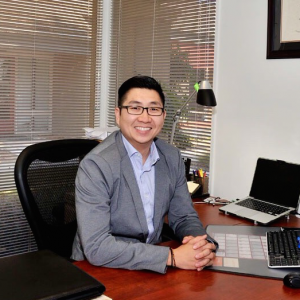
Tony Tai Nguyen
“We are all here for a reason on a particular path / You don’t need a curriculum to know that you’re a part of the math.” — J. Ivy
Last month, the Supreme Court heard oral arguments in the case of Endrew F. v. Douglas County School District.

8 Tips For Creating A Comprehensive ‘AI In The Workplace’ Policy
Corporate investment and usage in generative AI technologies continues to accelerate. This article offers eight specific tips to consider when creating an AI usage policy.
As noted by Oyez, the primary question in this case is: What is the level of educational benefit that school districts must confer on children with disabilities to provide them with the free appropriate public education guaranteed by the Individuals with Disabilities Education Act (IDEA)?
As highlighted by SCOTUSblog’s Amy Howe, the Justices grappled with what the proper standard for measuring education benefits for children with disabilities should be:
The Justices were dissatisfied with the U.S. Court of Appeals for the 10th Circuit’s ruling that school districts can satisfy federal education law as long as they offer a student with a disability an educational program that provides him or her with a benefit that is more than merely de minimis, or non-trivial.
It was less clear exactly what standard (if any) the justices might substitute for the ‘more than merely de minimis’ standard, but a standard ‘with bite’ — as Justices Ruth Bader Ginsburg and Elena Kagan put it — would be a welcome development for children with disabilities and their parents.
It is unclear how the Justices will decide this case, but it’s clear that their decision will have lasting consequences for the future of our country’s children with disabilities.

How MyCase Accounting Transforms Legal Bookkeeping
This complete system built for lawyers simplifies the complex world of law firm finance.
This week, I had the opportunity to catch up with Tony Nguyen. Besides running a legal practice focused on education, Nguyen serves on the board of directors for Team of Advocates for Special Kids (T.A.S.K.). He is a Pro Bono Attorney with the Public Law Center’s Southeast Asian Legal Outreach Project, a member of the Orange County Bar Association Young Lawyers Division — Diversity & Inclusion Committee and Social Committee, a Youth Leader with The Roman Catholic Diocese of Orange, and a part-time Associate Advisor with the Boy Scouts of America.
Nguyen and I had a chance to review the Douglas County School District case and discuss his experiences as a young attorney. Here is a (lightly edited and condensed) write-up of my conversation with Tony Nguyen:
RC: What’s your prediction on how the Supreme Court will rule on this case?
TN: It’s a tough call. The justices did not collectively seem too thrilled with the Tenth Circuit’s ruling a public school can meet its responsibilities under the IDEA simply by providing educational benefit that is more than merely de minimis.
However, the justices’ dialogue and questions during oral arguments brought up noteworthy points for both sides. The outcome will ultimately depend on how truly dissatisfied the Justices are with the “more than merely de minimis” standard and if a clear, new standard is justified.
One thing is for sure, if a new heightened standard were to be adopted, more students with disabilities would certainly benefit from their public education.
RC: You refer to yourself as a special education attorney. How would define your practice?
TN: My law practice serves students with disabilities and their families. A phrase that best defines my practice is, “advocacy without borders.”
The phrase motivates my practice to go beyond my cultural and geographical boundaries. To do this, I make it my mission to reach out to families in rural areas, such as the agricultural regions of central California, who lack the legal services and care for their children with special needs.
RC: What do you think are some of the biggest misconceptions regarding parents’ and students’ education rights?
TN: I get this question quite a bit when I present at special education law workshops. The biggest misconception about special education is that special education is a classroom full of children with physical and visible disabilities.
This is not necessarily true. While special education may be a class setting, it could also be a type of service such as speech therapy or occupational therapy. For example, if a student has only speech articulation difficulties that adversely affect their education, he or she may qualify for special education. A student may likely remain in his or her general education setting entirely, except for when the student attends speech therapy sessions.
On the other hand, if a student has greater needs where they cannot receive educational benefit in the general education setting, even with the use of supplementary aides and services, then the student may need to be in a special education type class.
RC: How have your bilingual abilities helped you to raise special education awareness in the communities you serve?
TN: As one of the few (if not the only) Vietnamese-speaking special education attorneys in California, it’s my responsibility to help start the conversation about special education law in larger Vietnamese-American communities such as Orange County and the San Jose area. Being an immigrant myself, I understand there are some cultural barriers I must overcome to effectively raise awareness within the community.
By speaking Vietnamese, I’ve been fortunate to have opportunities to collaborate with other professionals and non-profit organizations serving children with disabilities to reach families through television appearances, conferences, and community events.
RC: What career advice do you have for law school students and young attorneys?
TN: An encouragement I would give law students and young attorneys who dream about starting their own practice immediately after graduating is to create a business plan as early as possible.
Law school teaches us to become lawyers, but it generally does not prepare us for the business knowledge needed to start a legal practice and grow clients. While we are skilled at understanding law, we can hone those skills only when we are given the opportunity to do so through our clients. That’s why I believe “beefing up” our business know-how is half the battle of running a successful law practice.
RC: What’s the hardest part of running your own practice?
TN: For those who currently have their own practice, the best response to this question may be, “What’s not hard about running your own practice?” As a developing solo practitioner without a support staff, I think the hardest part is balancing every aspect of my practice on a daily basis. Although it can be an overwhelming amount of work, I thoroughly enjoy it. When things get a little rough, I just think of it as the necessary “growing pains” I must endure to become a stronger attorney and advocate for the children and families I serve.
RC: It was great chatting with you. Is there anything else you would like to share with our audience?
TN: I would like to thank Above the Law for allowing me to share my thoughts and experiences about special education law with the legal community. Your sincere interest in the legal issues surrounding education, especially relating to children with disabilities and their families, promotes awareness for all of us to work together in building a better future for generations to come.
To children with disabilities, you are the reason why I entered the legal profession and you will continue to be the inspiration for my personal and professional life. To parents of children with disabilities, you will always have my undying dedication and support.
RC: On behalf of everyone here at Above the Law, I would like to thank Tony Nguyen for sharing his story with our audience. We wish him continued success in his career.
Tony Nguyen can be reached at [email protected], and you can visit his site at www.k12.edlaw.com.
Renwei Chung is the Diversity Columnist at Above the Law. You can contact Renwei by email at [email protected], follow him on Twitter (@renweichung), or connect with him on LinkedIn.